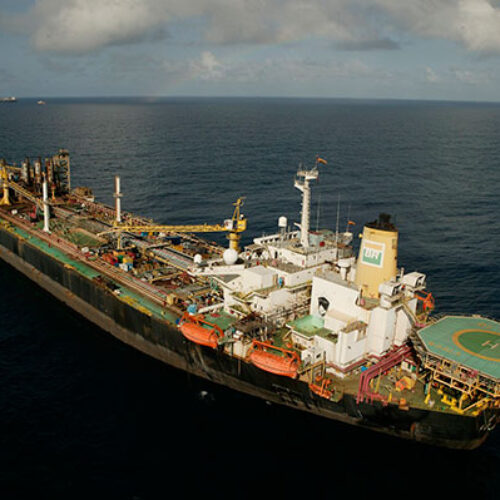Press Release – Polluting shipbreaking practices threaten Ghanian shores
In light of the recent infrastructure developments taking place at its main ports of Tema and Takoradi, Ghana is aiming to become the main integrated maritime hub of the west African subregion. Yet, certain unregulated practices, such as the demolition of end-of -life vessels, still represent a threat for the ecosystem and the health of the quarter of the country's population that lives along the coast.
Due to the weak enforcement of environmental legislation, low labour costs and occupational safety standards, and the absence of a legal framework covering the recycling of obsolete vessels, dozens of ships have been arbitrarily dumped on Ghanian shores in the last years. Evans Ago Tetteh, PhD Adjunct Lecturer at the Regional Maritime University in Accra, recently reported on the present situation of ship demolition in Ghana, and provided evidence on the environmental harm caused on the beaches of Kpone by the spillage of hazardous substances, such as marine diesel oil. Some of the toxic vessels beached in Ghana have European ties. It is the case of the refrigerated cargo ship NAFTILOS, which was owned by Greek company Fairport Shipping Ltd and which maritime databases still list as laid-up.


Shipbreaking yards are granted licences by the Ghana Maritime Authority and permits by the Ghana Port and Harbours Authority, but neither entity follows through on the process to ensure that the scrapping process is conducted in an environmentally sound manner. To date, the Ghana Shipping Act 2003 (Act 645), the Ghana Maritime Pollution Act (Act 932), the Environmental Protection Act 1994 (Act 490) and the Hazardous and Electronic Waste Control Management Act 2016 (Act 917) are the only laws designed to regulate the ship recycling business, without any sector-specific rules.
In recent years, the number of steel companies in Ghana has increased, particularly near the Tema Kpone industrial zone, as well as the country’s thirst for steel scrap. In light of this new demand for raw materials, the NGO Shipbreaking Platform is calling upon the government of Ghana to develop new legislation tailored to regulate ship recycling activities in line with European standards, and to set up a clean and safe industry with adequate downstream waste management facilities. The beaches are not a suitable place for the breaking of toxic vessels.
Related news

Platform News – Global ban on exporting hazardous waste to developing countries becomes law
The Basel Ban Amendment, adopted by the Parties to the Basel Convention in 1995, became international law on December 5.
... Read More
Press Release – Two workers killed at Gadani shipbreaking yards
NGOs join trade unions in calling for enforcement of occupational health and safety standards.
... Read More
Press Release – Petrobras to recycle offshore unit in Brazil for the first time
This significant move paves the way for the development of a recycling industry in Brazil.
... Read More
Platform News – Investigations ongoing after Norwegian authorities press charges against owners of Harrier
The HARRIER is still under arrest in Norway after its owners failed to illegally set sail for the dangerous and dirty scrapping yards in Gadani, Pakistan, last… Read More

Press Release – BBC exposes dirty and dangerous scrapping of oil and gas units in India
A BBC Disclosure production released this week reveals the harm caused by shipbreaking activities in Alang, India.
... Read More
Press Release – Controversial Tide Carrier under arrest in Norway
After having been informed by the NGO Shipbreaking Platform and its member organisation Bellona that the TIDE CARRIER (now named HARRIER, aka EIDE CARRIER) had been… Read More

Press Release – Clemenceau’s sister ship heading for the scrapyard
The São Paulo, as the Clemenceau, contains large amounts of hazardous substances within its structure.
... Read More
Press Release – Local residents rally against shipbreaking operation in Union Bay, British Columbia
Local residents marched last Sunday at Union Bay to protest against the dirty and dangerous scrapping operations carried out in the area by Deep Water Recovery Ltd (DWR).
... Read More